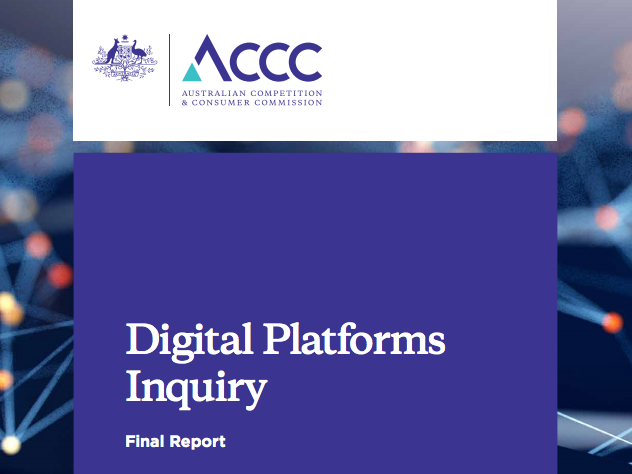‘Australia can’t afford to allow digital platforms to continue their monopoly unchecked’: Media businesses respond to the ACCC Digital Platform Inquiry Final Report
The ongoing saga of the Australian Competition and Consumer Commission (ACCC)’s Digital Platform Inquiry is entering its final phase for 2019, with media companies preparing and lodging their responses to the final report to the Treasury before the government is due to make a decision on the 23 recommendations from the 600+ page report.
Overwhelmingly, the companies have supported the suggestions handed down from the ACCC, which include changes to codes of conduct, revenue models, and a bigger focus on data privacy.

The ACCC Digital Platform Final Report was handed down in July


Yeah right.
Hi there,
This wasn’t meant to be balanced – it was meant to be the media companies responding to the report. That was always going to present us with a somewhat one-sided piece – as it did when we reported on the flip side, in the form of Google’s and Facebook’s perspectives.
You can read all about the other side here (this is also referenced and linked to in the piece):
https://mumbrella.com.au/facebook-claims-the-acccs-digital-platforms-report-relied-on-speculative-analysis-and-conflated-facebook-and-google-598296
Thanks,
Vivienne